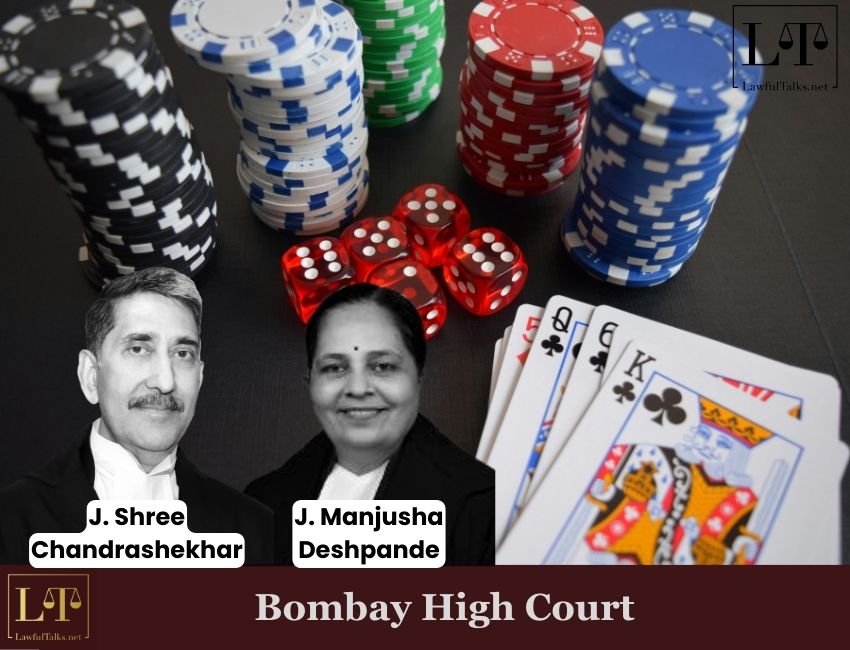Allahabad HC Sets Aside Afzal Ansari's Conviction, Allows Him to Continue as MP

The Bombay High Court has upheld the cancellation of the appointment of a candidate selected for the post of Clerk-Typist in the City Civil & Sessions Court, Greater Bombay, after finding that he had suppressed material facts regarding his prior conviction under the 12A of Bombay Prevention of Gambling Act, 1887.

A Division Bench of Justice Shree Chandrashekhar and Justice Manjusha Deshpande dismissed the writ petition filed by Jayesh Bandu Limje, who had challenged the June 9, 2025 decision striking his name off the select list.
While Limje had cleared the written examination, Marathi and English typing tests, and interview, his online application form declared “No” to all questions relating to registration, trial, conviction, or acquittal in any criminal case.
It was only in the attestation form – submitted after receiving his appointment letter – that he disclosed having been convicted and fined ₹300 for an offence under Section 12A of the Bombay Prevention of Gambling Act, 1887.
The Court held that such suppression went to the root of the candidate’s suitability. The bench stated, “When a candidate initially suppresses the material facts and obtains the appointment fraudulently then it is a case of trustworthiness, reliability and credibility of such a candidate. The employer would have taken a decision at the very inception not to employ him, had the candidate disclosed the relevant and material information at the relevant time”; “The choice must be given to the employer whether to continue or not to continue such an employee. Such an employee cannot claim the appointment and/or continue to be in service as a matter of right.”
Rejecting the plea that the offence was petty, the judges said, “The compounding of an offence is no different from conviction on trial and the only difference is that the accused is given the benefit of compounding on admission of guilt. The severity of punishment is not the sole criteria to determine the effect of a crime on the society. The involvement of the petitioner in the activity associated with gambling certainly pertains to moral turpitude and the writ Court shall have no jurisdiction to direct the employer to take the person like the petitioner in employment who was involved in such an activity.”
They further remarked, “This is also a relevant consideration for taking a decision whether or not to appoint a person or to terminate his services that the presence of a person like the petitioner in the civil Court as an employee would seriously challenge the confidence of the litigants and the members of the Bar. He would always be looked upon as suspect and even his bonafide actions may come under the scrutiny. The standard expected of a person intended to serve in the establishment of judiciary is quite different and distinct from other services and any deliberate statement or omission regarding a vital information must be seriously viewed...”
In arriving at its conclusion, the Bench placed reliance upon the decisions in Kendriya Vidyalaya Sanghathan v. Ramratan Yadav (2003) and Avtar Singh v. Union of India (2016), which lay down that while employers may consider condoning minor, youthful indiscretions, suppression of material facts – particularly for offences involving moral turpitude – justifies cancellation of appointment.
It distinguished the case from Commissioner of Police v. Sandeep Kumar (2011), where the Supreme Court had condoned a young candidate’s omission in disclosing a minor offence, noting that Limje was 31 years old and fully aware of the consequences.
Finding no merit in the challenge, the Court dismissed the petition.
Case Details: Jayesh Bandu Limie vs. State of Maharashtra, WP 10460 of 2025

Het Dedhia
3rd Year Law Student from SVKM's Pravin Gandhi College of Law
Latest Posts
Categories
- International News 19 Posts
- Supreme Court 347 Posts
- High Courts 361 Posts


















































































































































































































































































































































































































































































































































































































































































































































